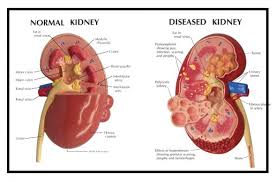
SUPPLEMENTS could be used to prevent high blood pressure symptoms and signs. You could lower your risk of hypertension by regularly adding these cheap capsules to your daily diet. Could you be at risk of high blood pressure?
High blood pressure is a common condition that affects more
than 25 per cent of all adults in the US. The condition, which is also known as
hypertension, could be caused by eating an unhealthy diet, or by not doing
enough exercise. Diagnosing the condition early is vital, as it raises the risk
of some deadly complications, including heart attacks and strokes. But you
could lower your chances of high blood pressure by regularly taking magnesium
supplements, it’s been claimed.
Magnesium helps to regulate your blood pressure bye relaxing blood vessels, revealed Harvard Medical School.
Not getting enough magnesium in your diet could lead to constricted blood vessels, and therefore high blood pressure.
For the best anti-hypertensive effects, choose a magnesium l-threonate supplement to top up on magnesium, added Dr Joseph Mercola.
“Along with an active lifestyle and healthy dietary habits, supplements may help reduce your high blood pressure levels safely and naturally,” said the physician.
“Magnesium deficiency due to insulin resistance is one of the causes behind constricted blood vessels, which in turn leads to hypertension.
To help your blood vessels relax and dilate, you should maintain optimum magnesium levels.
“If you're planning to take a magnesium supplement, go for magnesium l-threonate, since it's formulated for maximum absorption and it doesn't have laxative properties.
“Before you take any supplements, make sure that you consult your physician first to determine the proper dosage for your needs, or to check if these supplements are suitable for your condition in the first place.”
But you should be able to top up on magnesium from your diet, without needing a supplement, said Harvard Medical School.
The best sources of magnesium include dark leafy vegetables, unrefined grains, and legumes.
Taking too much magnesium from a supplement could lead to diarrhea, but there aren’t any known side effects of eating too much magnesium.
You could also lower your blood pressure by making sure you eat a healthy, balanced diet, and by doing regular exercise.
Everyone should aim to do at least 150 minutes of moderate-intensity activity every week.
High blood pressure is often known as ‘the silent killer’, because you may not even know you have it.
Hypertension symptoms only tend to reveal themselves if you have extremely high blood pressure.
Common high blood pressure symptoms include severe headaches, having a pounding in the chest, and finding blood in your urine.
Need Advice on Hypertension and High Blood Pressure?
Are you experiencing high blood pressure? You should talk with your doctor about how you can improve you health, and Primary Care Offices have the knowledge to help. Contact Primary Care Offices for a same day doctor’s appointment at one of our conveniently located offices all over South Florida. Give us a call at 954-450-9595 , chat online , or visit our patient portal on our homepage to get you feeling better in no time.











